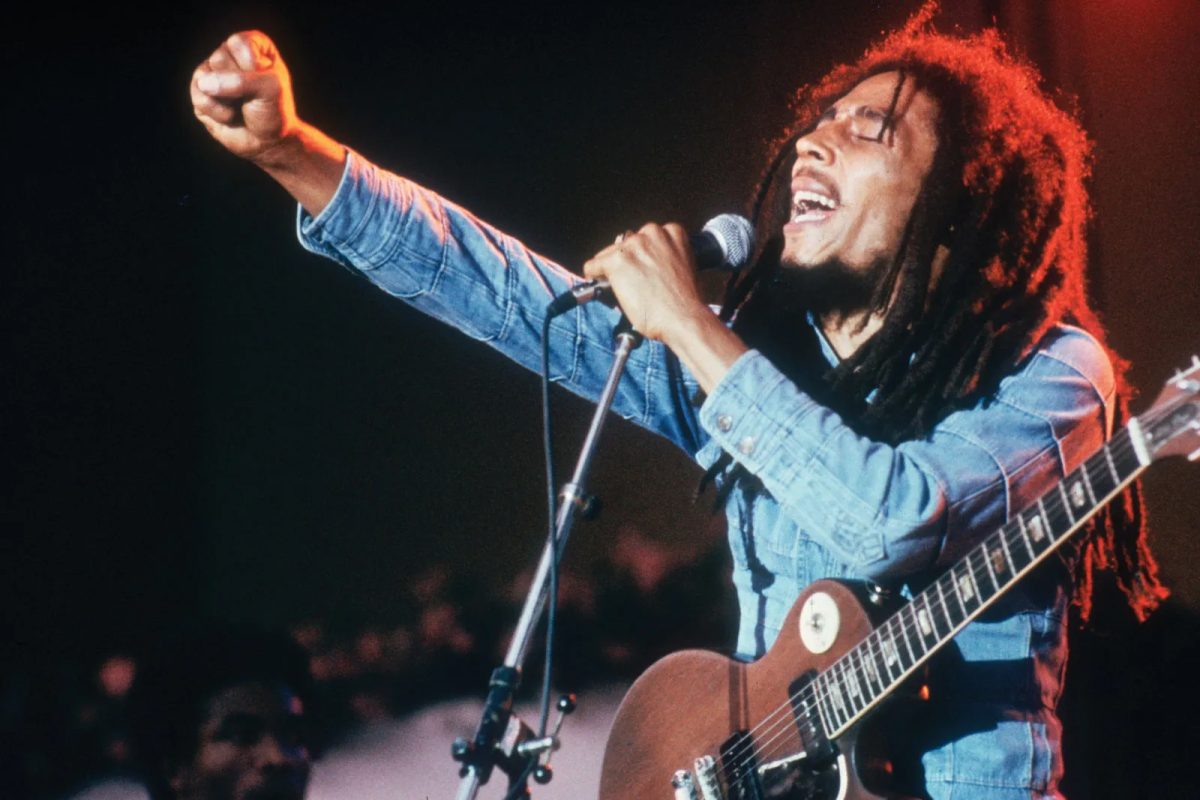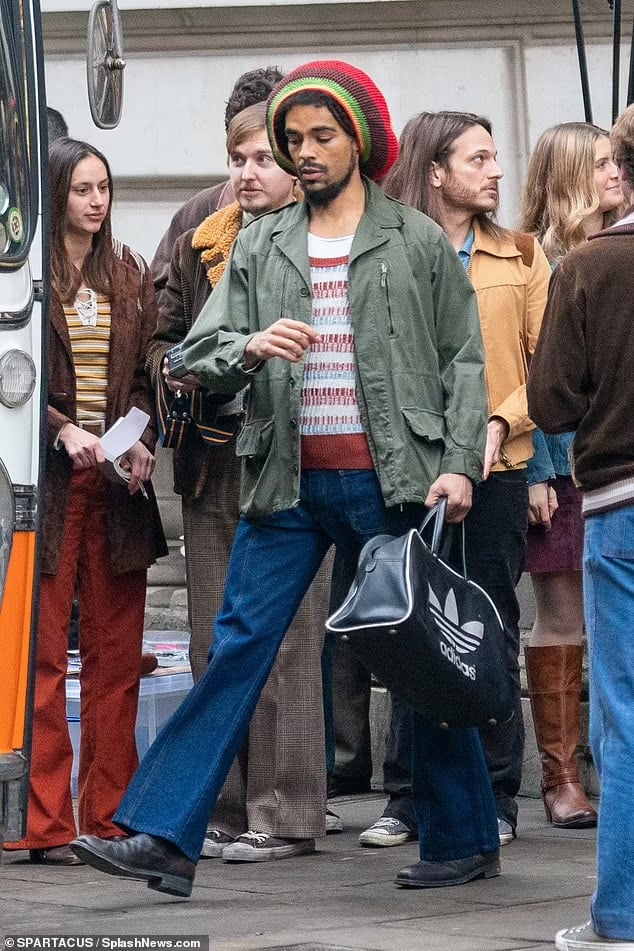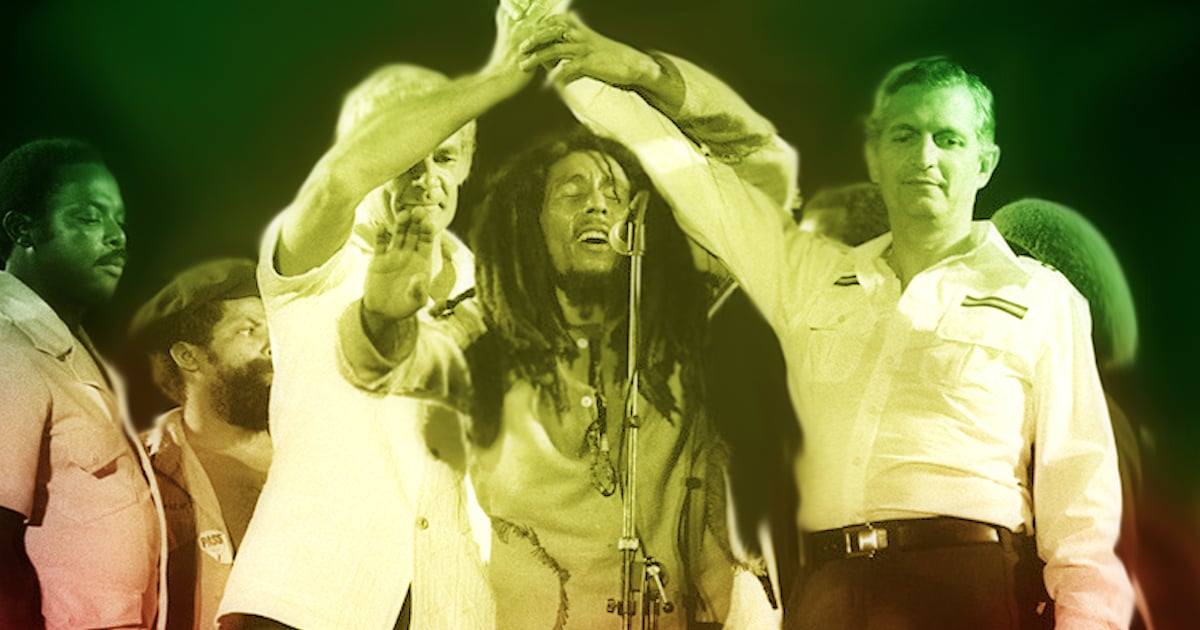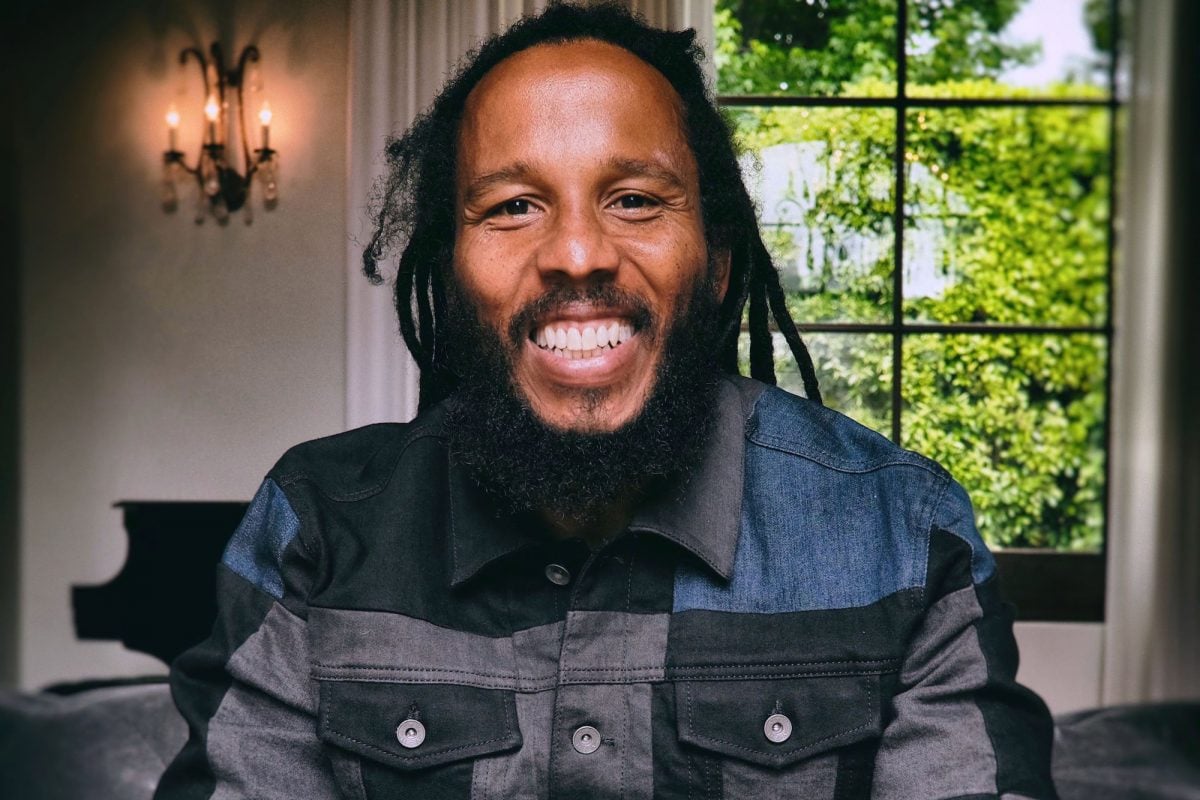Bob Marley Biopic Wraps Up Filming, Ziggy Says Manley, Seaga, Bucky Marshall, Claudius Massop Are Featured

Ziggy Marley says the filming of his father Bob Marley’s biopic, which covers the Reggae icon’s life between 1976 and 1978, is now complete, but still yet to be officially named.
The multiple Grammy Award winner also gave details on the plot of the biopic, which is set for release on January 12, 2024.
“We just finished the movie. Not titled yet, but (is about) the life story a mi faada, mi madda too. The foundation of it is from 1976 to 1978 the assassination attempt, to the return to the one Love Concert,” Ziggy told Irie FM’s Kabu on The Running African program on Sunday morning.
“When wi was going to meck di movie, mi seh I can’t meck a boring movie enuh. Wi haffi meck suppm weh wi a guh enjoy fi watch. Dat period of his life was a very active and valid time with whole heap a changes and things happening,” he added.
The biopic, for which the second phase of filming ended in Jamaica last month, will focus on the period in which Bob Marley survived an assassination attempt in Jamaica and went into self-imposed exile in London.
When asked how “political tribalism” was weaved into the film, Ziggy hinted that two of Jamaica’s foremost political enforcers of the 1970s era, Aston “Bucky” Marshall and Claudius Massop were also in the film, as well as the two leaders of the two major political parties at the time: the Jamaica Labour Party’s (JLP) Edward Seaga and Michael Manley of the Peoples National Party (PNP).
“Bucky and Claudie deh deh. It’s a history lesson fi a lot a du yutes dem now inna Jamaica. Dem wi get a likkle history… Manley and Seaga deh inna it. Everything deh inna it from dat period a time,” the Rebellion Rises singer explained.
Bucky Marshall, who was a militant supporter of the People’s National Party, was a major player in organizing the January 1978 Peace Treaty in West Kingston.
He was murdered in a New York City nightclub on March 8, 1980.
Claudius Massop was a JLP enforcer from West Kingston. He was killed by police along Industrial Terrace in Kingston on February 4, 1979.
Along with Ziggy, the other two executive producers of the film are Marley’s widow Rita and his daughter Cedella. The trio are producing the movie on behalf of Tuff Gong, the music label and studios which Bob established in 1970.
Ziggy had said in 2021 that the film would be paying homage to Bob “in a manner that has never been undertaken before” and would tell the Gong’s story “in a way that truly honours him and will also entertain, enlighten, uplift and inspire his fans and audiences around the world.”
During The Running African programme, Ziggy said lead actor Kingsley Ben Adir had done “a good job” starring as Bob Marley, as did his British compatriot Lashana Lynch, who plays the role of Rita.

“Suh yeh, wi feel like wi do a good job…The actor is Ben Adir; he is an English man but him really did a good job. Lashana Lynch, she is another phenomenal actor that we have in it; she plays my madda. And the whole cast is basically Jamaican. We have so much relatives of people who was actually there: Ras Michael son; Chinna Smith, Family Man son inna it, Junior Marvin son; Bunny Wailer son inna it. Sheldon play Neville. So it just represent right,” he said.
A 2020 Gleaner article which sums up the period covered in the biopic, notes that on December 3, 1976, when Bob was shot at his home at 56 Hope Road, Jamaicans across the island were utterly shocked. The report said that Rita Marley and the Gong’s manager were also seriously injured, while a bullet had grazed Bob’s chest and another lodged in his arm.
According to the story, Bob Marley was slated to perform at the free Smile Jamaica concert at the National Heroes Park in Kingston, two days after he was shot.
That concert had been arranged to ease political tensions and gang warfare that had gripped Jamaica in the months leading up to the December 1976 General Election.
It said that a flyer which advertised the event had said, “Bob Marley, in association with the Cultural Section, Prime Minister’s (Michael Manley) office, presents Smile Jamaica, a public concert featuring Bob Marley and the Wailers and I Three”.
“Marley’s popularity was looming large in Europe and parts of the USA. He was revered by many and seen as a symbol of freedom. The attack, some say, was to send a strong message that he should not meddle in politics… The question that still lingers is whether Marley was attacked by assailants aligned to the political parties or was it the work of the CIA?” the article stated.
The article noted that after the assassination attempt, Bob had flown to Nassau, Bahamas, and later to England, where he recorded his Exodus and Kaya albums in 1977 and 1978, respectively.
Two years later, he returned to Jamaica for the famous One Love Peace concert, where he had Manley and Seaga join hands in a symbolic show of solidarity.


